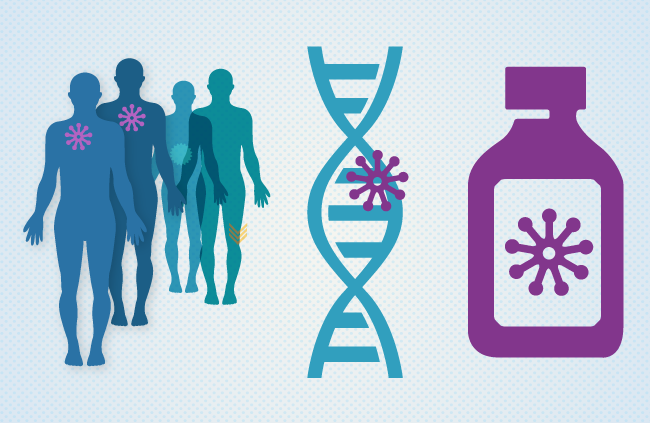By: Bradley J. Fikes
Treatment of rare tumors can be improved with a “precision medicine” approach of matching treatment to the molecular profile of the cancers, according to a preliminary study from UC San Diego researchers.
Tumors stabilized, regressed or disappeared entirely in 11 of 21 patients given the matched therapy, according to a paper on the study published Monday in The Oncologist.
The improvement persisted for six months or longer, and was significantly longer than the last previous unmatched therapy given to the patients, the paper stated.
“Further studies investigating the efficacy of the precision therapy approach among rare tumors are warranted,” it concluded.
The researchers examined 40 patients with rare tumors to see if their cancers could be matched with a precision therapy based on analyzing the genetic and protein makeup of the tumors. Just over half received matched therapy.
The paper can be found at j.mp/raretumors when placed online. Razelle Kurzrock was senior author; the first author was Shumei Kato.
The study is based on the experience of a Rare Tumor Clinic recently established at UCSD Moores Cancer Center to deal with these difficult cases. Rare tumors in the study patients included two types of ovarian cancer, basal cell carcinoma and sarcoma.
Because these tumors are rare, doctors often lack experience dealing with them, including making the diagnosis. Moreover, there’s often a lack of therapies approved for these particular cancers.
A rare kind of tumor occurs in fewer than 15 cases per 100,000 people. The total incidence of cancer in the United States is about 455 new cases annually per 100,000, according to the National Cancer Institute.
However, when added together, rare cancers are collectively not that uncommon, representing nearly 25 percent of cancer cases. That amounts to a considerable proportion of cancers that don’t have adequate treatment options, the study said.
Tumor-matching is also carried out by the San Diego-based Clearity Foundation for women with recurrent ovarian cancer. The foundation provides a “tumor blueprint” with the cancer’s molecular characteristics, which is used to select a treatment regimen for the particular tumor.
The study was supported by the Joan and Irwin Jacobs Fund and the National Cancer Institute.
To read this entire article by The San Diego Union Tribune, please click here.


